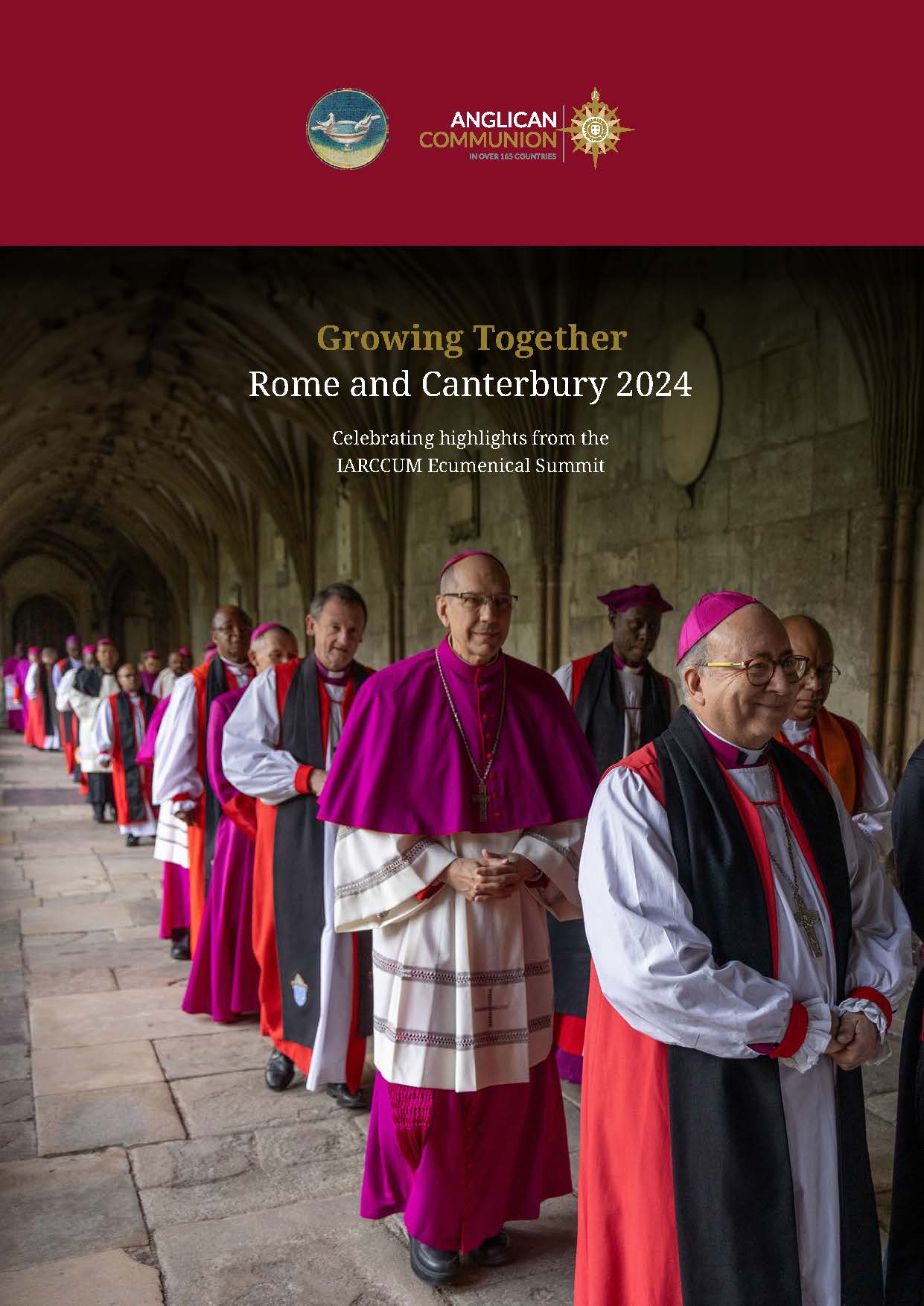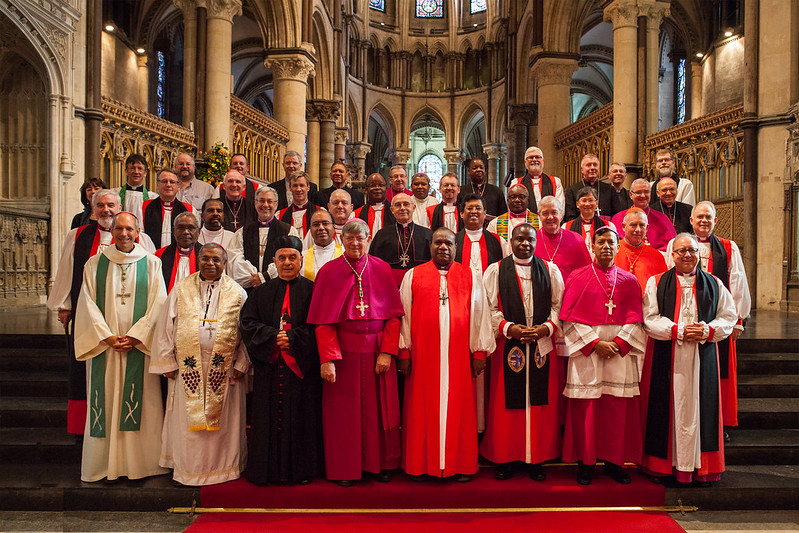IARCCUM stands for the International Anglican–Roman Catholic Commission for Unity and Mission. IARCCUM aims to foster closer co-operation between the Anglican and Roman Catholic traditions, and put into practice progress made in theological conversations. IARCCUM works through pairs of bishops in particular countries, one Anglican and one Roman Catholic, meeting together and promoting shared mission.
The work of IARCCUM is co-chaired by Bishop David Hamid, Suffragan Bishop of the Diocese in Europe, and Archbishop Don Bolen, the Catholic Archbishop of Regina, Saskatchewan. It is supported by The Dicastery for Promoting Christian Unity in Rome and the Anglican Communion Office – the official Secretariat to the Anglican Communion.
IARCCUM was established in 2000, by Archbishop George Carey and Cardinal Edward Cassidy, the then President of the Pontifical Council for Promoting Christian Unity.
Growing Together in Unity and Mission, an Agreed Statement by the International Anglican – Roman Catholic Commission for Unity and Mission, was released in 2006.
Having taken place during the Week of Prayer for Christian Unity, bishop pairs from the Anglican and Roman Catholic traditions gathered for Growing Together - a weeklong summit for ecumenical discussion and pilgrimage in Rome and Canterbury between 22 and 29 January 2024.
After visiting holy sites in both Rome and Canterbury, the bishops prayed, reflected and learnt from one another. The aim was to discuss ways of growing together in joint witness and mission in the world.
Themes of discussion included the situation of the churches and peoples in all the regions represented, how power is best exercised, service, safeguarding, peace and reconciliation (especially in the Middle East, Sudan and South Sudan and Myanmar), synodality and the environment.
On January 25, near the tomb of the Apostle Paul, Pope Francis and the Archbishop of Canterbury commissioned the bishops, sending them out in pairs, to be witnesses to Christian Unity. This was a significant moment, symbolic for Anglican-Catholic bonds and advancing ecumenical dialogue.
Over 50 bishops participated from 27 countries, including: Australia, Belgium, Brazil, Burundi, Canada, Egypt, and North Africa, England, Ghana, Hong Kong, India, Ireland, Malawi, Melanesia, Mexico, Middle East, Myanmar, New Zealand, Nigeria, Pakistan, Papua, new guinea, Scotland, South Africa, South Sudan, Sri Lanka, Sudan, USA, and the West Indies.
The bishops have produced a Joint Statement outlining how they will seek to walk together in mission and witness:
The Summit was organised by IARCCUM - the International Anglican-Roman Catholic Commission for Unity and Mission. IARCCUM is an official commission of the Anglican Communion and the Catholic Church, established to ecumenical dialogue between the traditions.
You can find out more about IARCCUM and access the online resource centre for Anglican-Roman Catholic relations at iarccum.org

Discover the key moments and insights from the Growing Together ecumenical summit in the IARCCUM Highlights Report. This resource reflects on the pilgrimage, worship, and dialogue that took place in Rome and Canterbury, celebrating Anglican and Roman Catholic collaboration and shared mission.
Download the ReportExplore the press releases from the IARCCUM 2024 Summit, showcasing key moments and milestones in Anglican-Catholic collaboration for unity and mission.
29 January
It’s time to ‘walk together, pray together, and seek justice together’, say Anglican and Catholic Bishops as they share their commitment and call for Christian Unity
29 January
"Called to be Jesus Partners" - Anglican and Catholic Growing Together Summit in Canterbury
23 January
Anglican and Catholic Bishops make pilgrimage to St Peter’s Basilica for Anglican Choral Evensong as part of the ‘Growing Together’ Ecumenical Summit

IARCCUM pairs Anglican and Roman Catholic bishops from around the world, uniting them in dialogue, prayer, and shared mission within their own countries and regions. These bishop pairs work together to strengthen Christian unity, serve their communities, and address global challenges.
See the full list of bishop pairings and watch video interviews with them, as they share their experiences, challenges, and the ways they are walking together in faith.
Learn more
View and download communiqués and documents from historical IARCCUM Meetings
Learn more